Circle of Goodness Part 2: Agroforestry with Our Bamboo
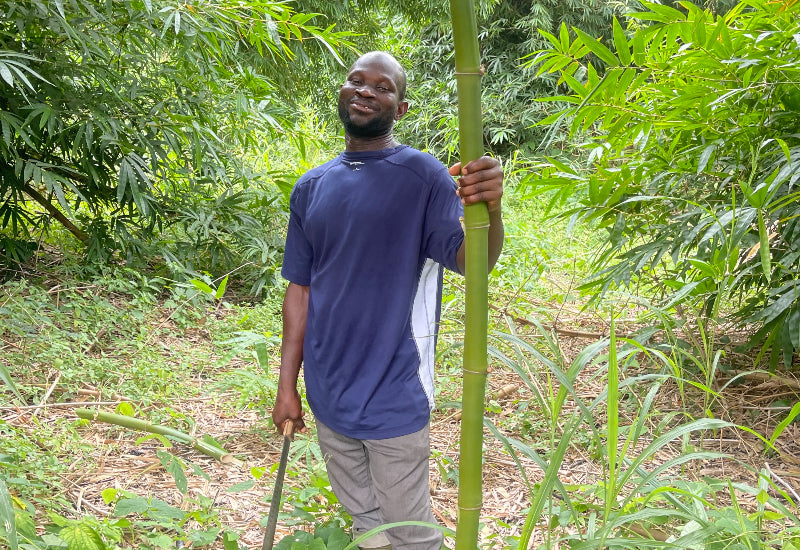
You’ll be happy to know that our mission goes much further than just producing eco-friendly toilet paper. In fact, we’re dedicated to creating meaningful change – not just for ourselves, but for society and the environment. In our previous Circle Of Goodness blog, we introduced you to part one, which starts with empowering our farmers. Today, we’re diving into part two: the agricultural aspect of the Circle Of Goodness. Together with our partner INBAR, we’re working on developing effective bamboo agroforestry methods, creating workshops to transfer knowledge and resources to certified farmers, and establishing a bamboo nursery.
Bamboo Cultivation in the Eastern Region
In the lush landscape of Ghana’s Eastern Region, many farmers have seen hundreds of bamboo stalks grow on their land for decades. Unfortunately, these precious resources are either burned to make way for more traditional crops such as maize, cassava and cocoa, or are simply left untouched, unmanaged and unused. The latter is often the case because farmers are simply unaware of the economic benefits of growing and selling bamboo. This is largely because there has never been a high demand for it – until now!
The solution: introducing 'bamboo agroforestry'
This is where bamboo agroforestry comes in. In a broader sense, bamboo agroforestry is a sustainable agricultural system that combines the cultivation of bamboo with other crops and trees. It is an agricultural system that aims to create a diverse and multi-layered ecosystem where bamboo, trees and other agricultural crops coexist and support each other. Our ongoing research with INBAR aims to demonstrate the positive effects of bamboo agroforestry, such as improved soil fertility, improved water management and increased biodiversity on farmers’ lands – but that’s not all! By introducing this way of farming, we are able to enable farmers to maximise the unique and positive properties of bamboo, which in turn will create an opportunity to diversify farmers’ income sources while contributing to a sustainable future.
Sustainable Sourcing Strategies
At the moment, we prioritize using existing bamboo resources and ensuring that bamboo is harvested in a way that promotes regrowth. As previously mentioned in our blogs, there is a surplus of bamboo in Ghana, however – we like to think ahead as we strive for maximum impact. By organizing workshops to train both old and new generations of farmers, we can pass on the knowledge of sustainable farming methods. This way, no matter what innovations we pursue in our sourcing strategy, one thing will always remain the same: our farmers will have all the knowledge and tools to implement these sustainable farming practices.
As briefly mentioned, we are also working to establish our bamboo nursery and plantation in partnership with government agencies. This long-term vision will not only ensure a consistent supply of bamboo, but also address youth unemployment and promote sustainable agricultural practices.
Bamboo Farming and Agroforestry
Our second sourcing strategy involves setting up our bamboo nursery. Planting bamboo is essential to our mission as it adds significant value to agroforestry. Due to the rapid growth of bamboo, it can reach maturity in just a few years, allowing farmers to generate rapid returns.
Bamboo’s deep root system not only helps conserve soil, but also prevents erosion and protects the land. Bamboo’s unique structure maximizes the use of sunlight, increasing the yield of other crops. As a natural windbreak and shade provider, bamboo regulates the microclimate and protects crops from extreme weather conditions. By providing young farmers with seedlings to start their own bamboo plantation, we can tackle youth unemployment.
In addition, we aim to ensure that farmers use a maximum of 20% of their land for bamboo cultivation. This approach ensures that they do not become completely dependent on bamboo income, but also generate income from other crops, which promotes diverse and sustainable livelihoods.
In summary, our journey continues to empower Ghanaian smallholder farmers through bamboo agroforestry. Together we strive to make a lasting and meaningful impact on their lives, the environment and society at large.
Want to know more about our Circle Of Goodness? Read our previous article here !
Crowdfunding
We invite you to become an essential part of this radical change in the supply chain. By investing in our crowdfunding campaign, you will not only support the journey to the first Fair Trade toilet paper brand; you will become a champion for Ghanaian farmers, sustainable agriculture and community development. Together, we can transform a simple daily ritual into a powerful force for positive change. Join us on this exciting journey towards a more ethical and environmentally friendly future. Let’s move towards a brighter future, one roll at a time.
Keep rolling with us
-
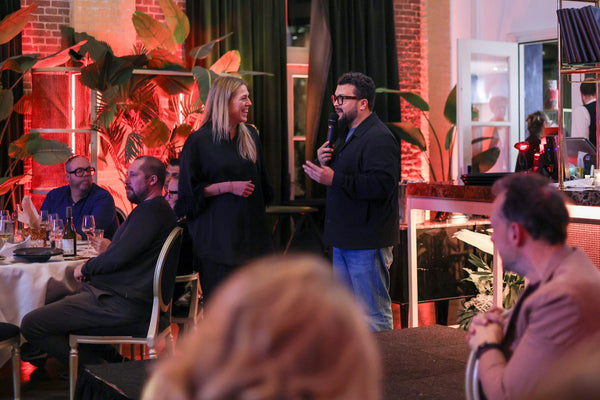
Wereld Toilet Dag
-

Wat is het verschil tussen 1-laags, 2-laags en 3-laags toiletpapier?
-
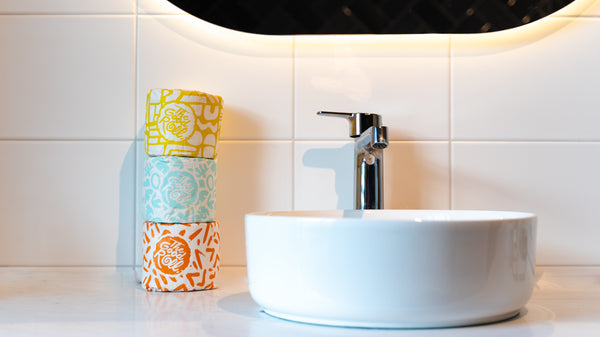
De impact van traditioneel toiletpapier op het milieu
-
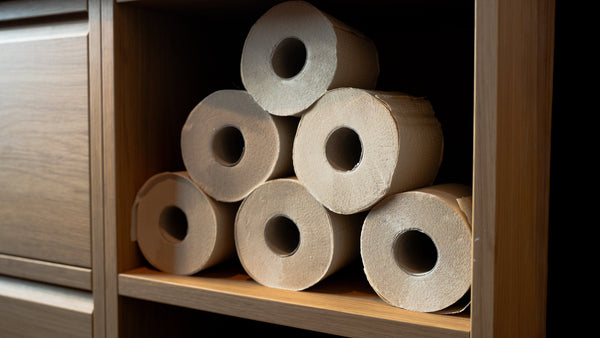
Wat is ecologisch toiletpapier en waarom zou je het gebruiken?
-

Wat is het verschil tussen gerecycled, ongebleekt en bamboe toiletpapier?
-
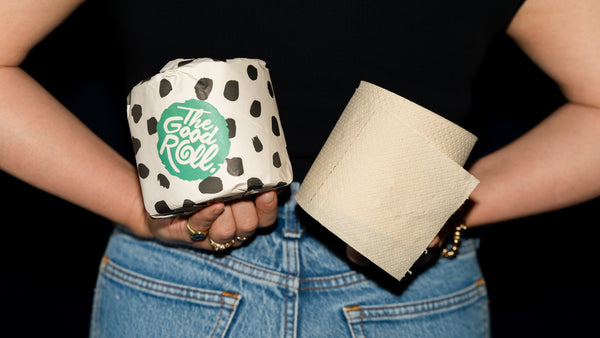
Is bamboe toiletpapier duurzaam?





